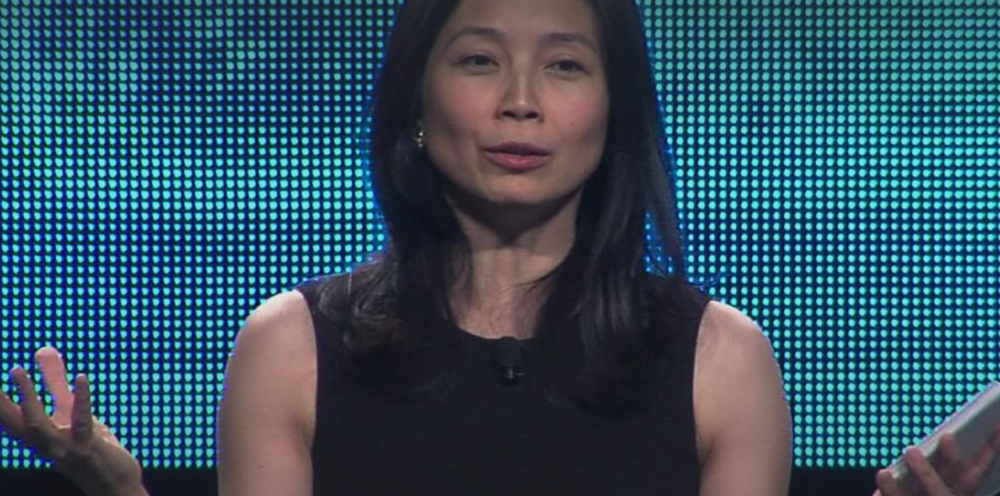

, Workforce & Economic Mobility
Key Takeaway
“Our current approach to financing postsecondary education and training isn’t working. But we’re building a new system, through the Career Impact Bond, where everyone wins.”
This essay by Tracy Palandjian first appeared in the Milken Institute’s Power of Ideas collection focused on navigating the new health, financial, and social uncertainties wrought by the ongoing pandemic and a reckoning of racial injustice. The essay series features insights from thought leaders across industries. Read the full collection here.
To recover from the pandemic and build a better, more equitable economy, we must remake our education and training system so that quality upskilling options are available to everyone.
Josiah was stuck working in food service, making $8 an hour and was looking for a way out. Then a spot in a local diesel technician training program opened up. Within months, Josiah was employed at a respected trucking company, servicing stalled semis with the help of a chauffeur since he was too young for an interstate commercial driver’s license. Today, Josiah is working as a diesel technician in Montana, making a living wage of $22 an hour, plus overtime.
The future of work hinges on skilled professionals like Josiah because the industries they inhabit are essential to our economic future. While information technology is redefining productivity with advancements in artificial intelligence and automation, people-centered sectors such as health care, green energy, and transportation are also well positioned to power the economy in the years to come, especially in the wake of the pandemic.
However, our education and training system is ill-equipped to fuel economic growth—it’s not even meeting current labor market needs. Indeed, amid historic economic upheaval, US businesses are struggling to fill 6.5 million job openings, including over 3 million middle-skill jobs that require training beyond a high school diploma but less than a bachelor’s degree.
Current higher education options are too expensive and too often disconnected from prevailing workforce trends. This hurts businesses, to be sure, but it also hurts workers, trapping tens of millions in low-wage jobs with limited paths to economic mobility, while burdening millions more with massive student debt. These are motivated workers locked out of upskilling opportunities because of cost, poor credit, justice system involvement, and other barriers. There’s huge untapped potential here, enough talent to end existing job shortages and contribute to the new economy. But to harness this talent, we must rewire our education and training system, beginning with the financing framework that undergirds it.
At Social Finance, an impact investing nonprofit, we set out to do just that a couple of years ago. Back then, we knew there were some great career-training programs—coding boot camps and other forward-looking, fast-moving upskilling offerings that helped people transition from dead-end, low-wage jobs into middle-skill careers. But we also knew these programs were expensive and designed for full-time attendance. A lot of folks can’t take on these financial and time burdens, including people of color and others who face systemic barriers to education and employment.
So we developed a new model, an upskilling solution where people don’t have to worry about paying high upfront costs or can’t afford to leave the labor force for an extended period of time. It’s called the Career Impact Bond.
This approach brings together student-friendly income-share agreements and wraparound supports, including emergency aid funds and living stipends, to break down barriers to quality training programs that prepare folks for jobs in growing, recession-resistant industries—the very sectors where businesses are currently looking to fill 6.5 million jobs.
Impact capital makes the Career Impact Bond possible, covering upfront training and wraparound support costs so students can enroll in training and access the extra support services they need to graduate and succeed in the labor force. This funding comes from various sources—foundations and impact investors looking to tap their investment portfolios to make an impact in the world and governments looking to sustainably build the workforce of the future.
Workers who graduate and get jobs with salaries over certain amounts repay the cost of their training via capped payments over fixed periods with no extensions. And those who don’t find career success pay nothing.
The Career Impact Bond orients partners around worker success according to a Student Bill of Rights. This creates a system of aligned incentives where everyone, from investors to training providers to employers to students, has skin in the game.
Our current approach to financing postsecondary education and training isn’t working. But we’re building a new system, through the Career Impact Bond, where everyone wins: where philanthropists and impact investors can use their entire capital spectrum for impact, where governments can sustainably build the workforce of the future and drive economic growth, where employers can access diverse talent pools and future-proof their operations, where great training providers can meet the needs of more people and more businesses, and where workers like Josiah can realize their full potential, find meaningful work, build careers, and fuel the economy of the future.
Related Insight

Career Impact Bonds Transfer Risks to Investors as the Future of Work Arrives
Tracy Palandjian discussed Social Finance’s latest innovation: Career Impact Bonds in an interview on ImpactAlpha’s Returns on Investment podcast.